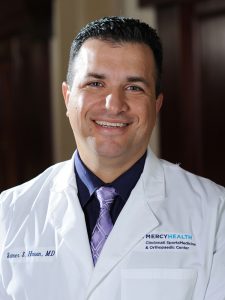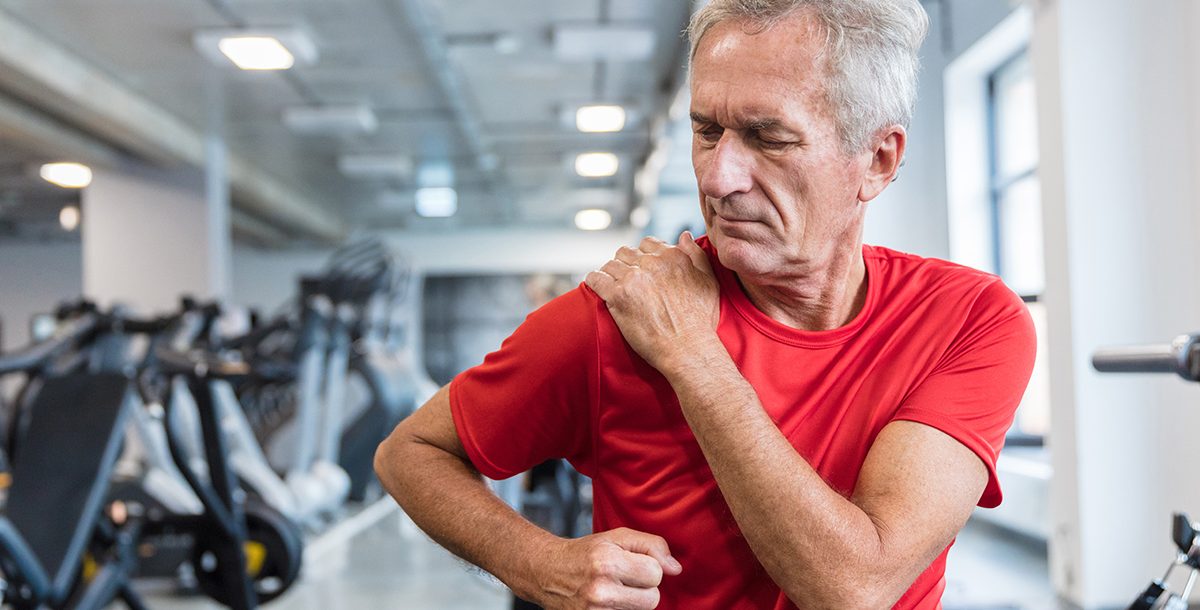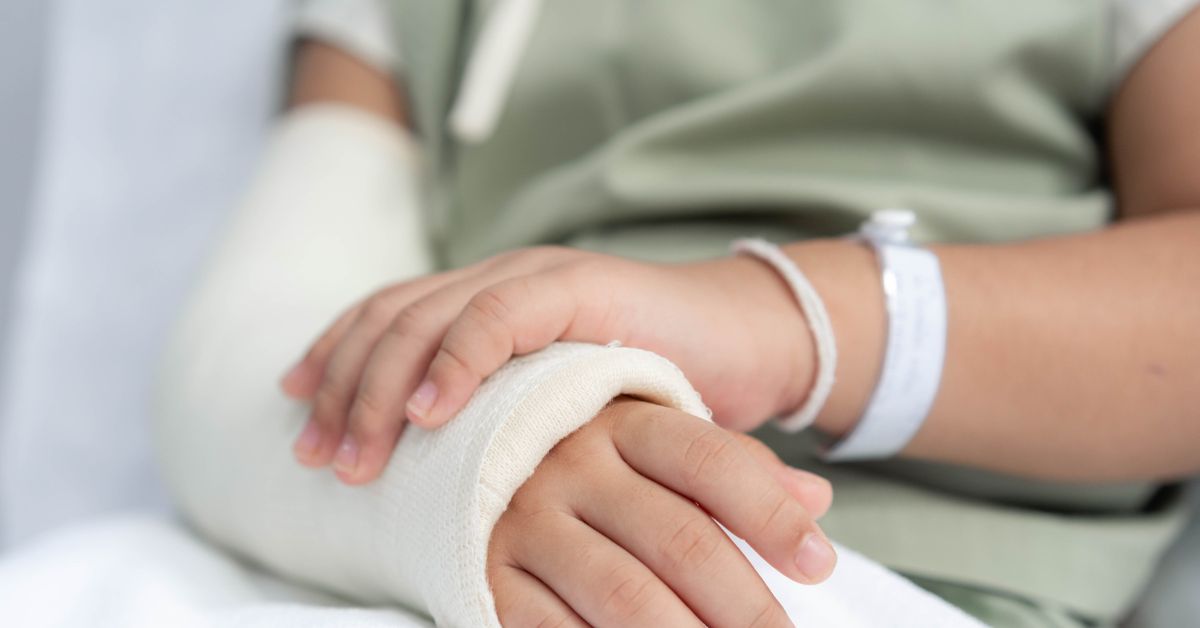Total shoulder replacement surgery, as with any surgery, can often cause anxiety and fear of the unknown.

Samer Hasan, MD, an orthopedic surgeon specializing in treating shoulder and elbow conditions at Mercy Health – Cincinnati Sports Medicine and Orthopedic Center, shares what you should expect after shoulder replacement surgery and tips on how to speed up your recovery.
What does recovery time look like?
While the actual time to recovery varies per person, it typically takes three to six months for the shoulder to recover fully, and sometimes range of motion and strength can improve for up to a year. During the first phase of recovery, which can last three to six weeks after surgery, your surgeon will ask you to wear a sling or padded soft brace to protect the shoulder. Of course, the sling is removed for changing clothes, bathing and to perform basic exercises.
The next phase is focused on recovering normal shoulder motion and function. Around three months after surgery, you will start strengthening exercises.
Typically, patients resume most basic activities of daily living within two to six weeks after shoulder replacement surgery. It may take up to six months to return to more vigorous activities such as golf, tennis or freestyle swimming.
Are there options for pain management?
Total shoulder replacement surgery is a major operation and it is typical for patients to experience some pain after surgery.
To help manage the pain, you might be given a nerve block injection right before your procedure. The nerve block may have an effect for one to two days after surgery, during which time you may feel little to no pain. When the nerve block wears off, some patients experience rebound pain, so oral pain medications may be needed for a few days after surgery.
Some pain with exercise and at night is common for several weeks after surgery, but these are typically managed with over-the-counter pain medication and by applying ice or cold packs to the affected shoulder.
How important is physical therapy?
Rehabilitation is critical for your recovery and usually begins the day of or after surgery. When you are leaving the hospital, you will be provided with a home exercise plan to follow, as well as an appointment for outpatient physical therapy.
Your physical therapist will adjust your treatment plan and exercises depending on the specific type of shoulder replacement surgery, and depending on your recovery stage. They will guide you on the proper exercises and help to improve your shoulder mobility and strength, with the goal of helping you to return to your prior activity levels after surgery.
The duration of physical therapy after shoulder replacement surgery varies from one patient to the next. However, most people can expect to spend two to three months in physical therapy after surgery. Patients who have higher demands or expectations for function after surgery may take longer to reach those goals or return back to vigorous sport or work.
Tips on how to speed up your shoulder replacement surgery recovery
Prepare yourself and your home before surgery
Prior to surgery, and on advise of your surgeons, you may be able to do exercises to make it easier to recover full motion quicker after surgery (pre-habilitation). Leading up to surgery, work on maintaining your shoulder flexibility as much as you can and on strengthening your shoulder muscles.
It is also a great idea to prepare your home before surgery for your recovery afterwards. For the first few weeks after surgery, your mobility will be limited, so make certain you have loose fitting clothes that can be buttoned or zippered easily. It is helpful to stock up on basic household items and place these in easy to reach locations. Arranging transportation and help with your daily tasks is also important.
Support and rest
After surgery, your body will need rest and your shoulder will need to be supported. Wearing your sling is important to help to stabilize and support the arm with the new shoulder joint. Most patients are able to sleep better after shoulder surgery if they are lying in a semi-reclined position Obviously, a recliner works well for the first few days or weeks after surgery, but otherwise, a few pillows can help prop you and your arm up to improve your sleep. A small pillow can help prop up the operative arm when lying down. Placing your hand underneath the sling also provides for extra support when changing positions.
Practice your physical therapy at home
Your participation with physical therapy and regular exercise are critical elements in the speed and success of your recovery. In addition to attending physical therapy, it is important to also follow the exercise program, designed for you, at home. Your surgeon and physical therapist may suggest that you exercise for two or three 15-minute sessions every day. Follow the exercises carefully and if you become sore or fatigued, pause to allow your muscles to adapt and recover.
Be patient in your recovery
It is important to be patient and remember that full recovery time will differ for each person. Having a positive and patient attitude will reduce stress during your recovery period and ultimately help to maintain your motivation in your recovery plan.
Mercy Health – Orthopedics and Sports Medicine is conveniently located throughout Cincinnati. We offer same/day next day appointments as well as extended hours at the Anderson and Fairfield locations.
Call 513-347-9999 or schedule an appointment online today.






